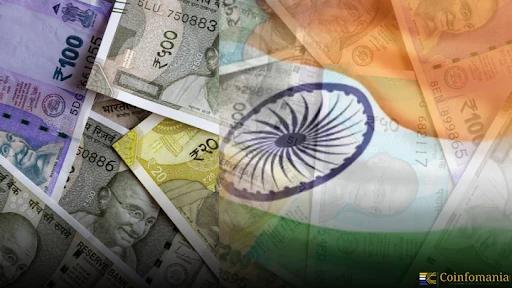Cryptocurrency Regulations in France
France stands out as a forward-thinking yet cautious European region when it comes to cryptocurrency activities. The country welcomes blockchain advancement while safeguarding investors from risks and fighting financial crime. France established well-defined legal procedures for businesses that work with digital assets to conduct their activities without restrictions or bans. The European Union’s crypto space […]

France stands out as a forward-thinking yet cautious European region when it comes to cryptocurrency activities. The country welcomes blockchain advancement while safeguarding investors from risks and fighting financial crime. France established well-defined legal procedures for businesses that work with digital assets to conduct their activities without restrictions or bans.
The European Union’s crypto space requires French investors to know and follow legal digital asset guidelines before working with the increasing cryptocurrency market. Several government organizations manage the rules that apply to cryptocurrency operations.
- Autorité des Marchés Financiers (AMF) – France’s financial markets regulator
- Autorité de Contrôle Prudentiel et de Résolution (ACPR) – Oversees banks and financial stability
- Banque de France works as the national bank and conducts digital currency research projects
Historical Context
Initially, France approached cryptocurrencies with caution, as they were deemed speculative and high risk. Possible fraud, tax evasion and money laundering were feared. However, the year 2019 did bring progress with the PACTE Law that gave legal recognition to crypto businesses and Initial Coin Offerings (ICOs).
This was a turning point in which companies could register under a regulatory framework with the AMF and was a sign that the government was ready to integrate blockchain into its financial framework. France has gradually moved in the direction of the EU and in 2023 adopted the Markets in Crypto-Assets (MiCA) regulation.
This signals France’s commitment to innovate with accountability and thereby provides a stable base for crypto entrepreneurs and investors.
Regulatory Framework
Key Regulatory Authorities
- AMF: Supervises digital asset service providers (DASPs), Initial Coin Offerings (ICO), and crypto-related financial dealings.
- ACPR: Helps to supervise the banking and insurance sectors and oversees crypto firms meeting the requirements related to financial stability regulation.
- Banque de France: Focuses on financial innovation and digital currency experimentation
Licensing and Registration
Crypto exchanges and service firms plus safekeepers need to register as Digital Asset Service Providers with the AMF per 2020 regulations. Starting in January 2024, all licensed organizations needed to display stronger governance practices, improved cybersecurity defences, and more robust internal control systems.
AML/KYC Requirements
All DASPs registered need to follow the Anti Money Laundering guidelines and Know Your Customer. The compliance is in line with the 6th Anti Money Laundering Directive (6AMLD) and the FATF Travel Rule, which came into effect in January 2025.
Taxation
- Individuals are taxable on 30% of crypto capital gains.
- Cryptocurrency profits are liable to corporate income tax in businesses. All in all, it is obligatory for tax declarations with penalties in case of untruthfulness or evasion.
ICOs and STOs
If they follow transparency and investor protection standards, ICOs can ask for an optional AMF visa. If the tokens satisfy the requirements of financial instruments, they would be subject to the prevailing securities laws as Security Token Offerings (STOs).
France’s Crypto Policies
France does not yet accept cryptocurrencies as legal tender but allows one to use them for transactions and the property of digital assets is legal. Crypto mining is not outlawed by the country, however, the country is keeping an eye out for environmental impacts on energy consumption.
So far, the Banque de France has explored the blockchain solution for interbank settlement without a launched Central Bank Digital Currency (CBDC).
Non compliance with registration, AML or KYC regulations not only can result in fines up to €100,000 but also can lead to criminal prosecution for a single offence of money laundering.
The policy in France ensures that innovation has control so that the industry can be allowed to grow under proper overview. Additionally, due to the nation’s alignment with the EU in crypto space, the country’s crypto space is harmonized yet extremely rigorous for crypto adoption and investment.
France’s Approach to Crypto Innovation
At present, France does not have a national regulatory sandbox through which to allow crypto to innovate. But it does participate in the EU Blockchain Sandbox (started earlier in 2023), which helps facilitate the experiment of new blockchain products in a safe environment.
Meanwhile, crypto adoption increases – Société Générale recently started experimenting with tokenized securities utilizing blockchain as an infrastructure. Urban areas have also begun to accept cryptocurrencies in some retailers.
Meanwhile, government-backed initiatives like the DLT Pilot Regime are pushing boundaries by enabling controlled experimentation of tokenized financial instruments and solidifying France as a European blockchain leader.
Notable Challenges and Issues
Although there is a national regulatory framework, the realisation of EU-wide legislation such as MiCA entails challenges when you operate in a cross-border environment.
Unlike centralized exchanges, areas such as Decentralized Finance (DeFi) and self-hosted wallets make compliance an issue as they are very user-anonymous. While blockchain analysis tools exist to help, illicit activity tracking is still a challenge.
Currently, cryptocurrency has a mixed impression on the public in France. Generally speaking, tech-forward communities and a younger set of demographics are more enthusiastic, while the rest of the public looks at crypto with a wary eye given scams, volatility and past media stories.
However, slowly, perceptions are being shifted with increasing transparency and education and regulatory clarification is pushing more mainstream adoption.
Regulatory Trends and Future Outlook
France’s crypto regulation is going out of the cryptosphere very fast in line with the general vision of crypto at the EU level. From January 2025, all Transaction Digital Asset Service Providers will be required to report transaction details more thoroughly so as to enhance transparency and oversight under the Transfer of Funds Regulation (TFR).
While MiCA is supposed to go fully live and will tighten on French controls with DeFi, self-hosted wallets or algorithmic stablecoins in an effort to mitigate risk.
But in the case of the government stifling innovation, it is unlikely. Other international blockchain firms and investors have already shown interest in strategic efforts to position France as a European crypto hub. It will influence neighbouring countries of the EU and shape global standards, making it the one market to watch for the coming years.
Conclusion
While being an innovator, France is also staunch about its regulations in favour of cryptocurrency, providing firm regulations to protect the user and making sure there is stability in the financial market.
For investors, businesses and enthusiasts, knowing France’s regulatory landscape is key to running legitimately and strategically.
EU frameworks such as MiCA and national reforms are starting to make their way, therefore key to succeeding in France’s crypto market will be keeping track of regulatory changes.
Frequently Asked Questions (FAQs)
1. Is Bitcoin legal in France?
It’s actually legal and regulated to be used for personal or commercial purposes.
2. Can someone pay with crypto in France?
Nevertheless, it is not accepted as legal tender, only as a matter of voluntary acceptance.
3. Are the crypto gains in France taxable?
Yes, individual taxpayers pay a flat 30% tax on capital gains.
4. Do I need crypto exchange registration in France?
Yes, all exchanges must register with the AMF as Digital Asset Service Providers (ASP).
5. Is DeFi regulated in France?
DeFi is loosely regulated at present, but such stricter EU-wide rules are incoming.
6. Is there a CBDC in France?
There is no retail CBDC yet, but the Banque de France is testing blockchain systems for settlement.
7. What will happen if a crypto business runs without registration?
Fines up to €100,000 and potential criminal charges.
8. Are ICOs legal in France?
Yes, with an optional AMF visa for transparency and compliance.
9. Can I mine crypto in France?
In France mining is encouraged, but carefully monitored.
10. Is France crypto-friendly?
It does support innovation, but stringent safeguard regulation is enforced.
Follow us on Google News
Get the latest crypto insights and updates.
Related Posts

India Allows Global Trade Payments in Rupees to Reduce Dollar Use
Shweta Chakrawarty
Author

South Korea and Vietnam eye $150B trade despite Trump tariff
Shweta Chakrawarty
Author

Is U.S. Tariff Heat Bringing Russia, India, China Back Together?
Shweta Chakrawarty
Author